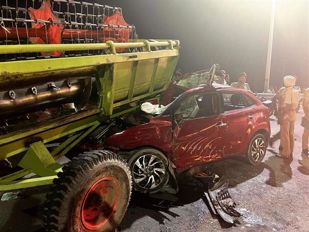Sudhir panwar
The Indian food processing industry, aptly recognised as ‘Sun rise Industry’, is poised for a huge growth. It is increasing its contribution to the food trade every year owing to diversity of agriculture produce encompassing 46 soil types, 15 major climates and 20 agro climatic zones.
At present, food processing industry is among the largest industries in India that accounts for 32 per cent of the country's total food market. It contributes around 13 per cent of India's exports and 6 per cent of total industrial investment.
The Indian gourmet food market is currently valued at $1.3 billion and is growing at a compound annual growth rate of 20 per cent. With recent efforts on organic agriculture, its market is expected to attain 300 per cent growth within 3-4 years.
The online format of food delivery companies — a new entrant in the market — registered an exponential growth of about 150 per cent.
The government has made efforts to promote investment in the industry by way of mobilising resources through various schemes, including development of integrated cold storage chains, model terminal markets, bulk storage facilities and mega food parks. As per the government, 41 mega food parks have to be set up in different states. Among these, six have become operational, two completed and 37 are under completion.
Despite huge potential in domestic and international market, the sector has limitations such as inadequate infrastructure, scattered presence and lack of robust forward and backward linkages.
Seamless and reliable supply chain is pre-requisite of any industry, but it is lacking in food industry because of various factors, including small and fragmented landholdings, multiplicity of land leasing laws, lack of dispute redressal mechanism arising out of the farmer-industry pre-agreed price dispute as witnessed in Punjab and Maharashtra and poor quality standards of produce due to lack of technology, knowledge and resources among farmers. At policy level there is lack of coordination between different departments and multiplicity of legislation which are often contradictory also.
The solution lies in integrated and innovative approach. The first requirement is to integrate the farmer as a partner in this industry for assured supply of quality produce, simplified and uniform regimen of laws amenable to scale of production and trained manpower for conformation to global quality standards and traceability requirements to tap export potential.
— The writer is a professor at the University of Lucknow



























